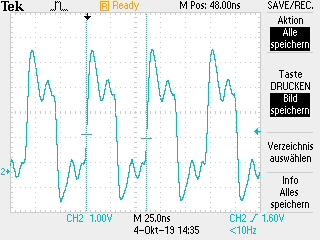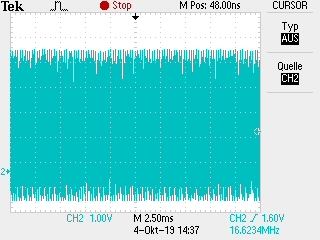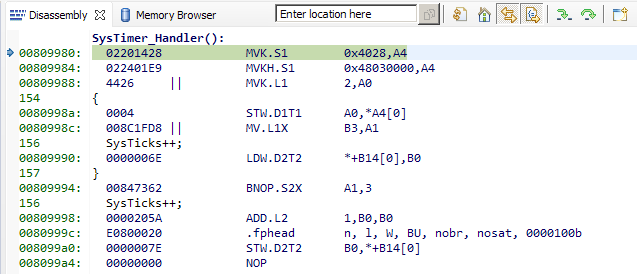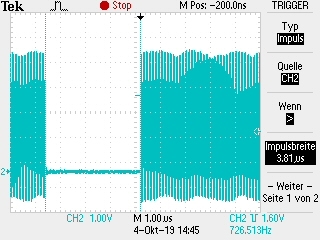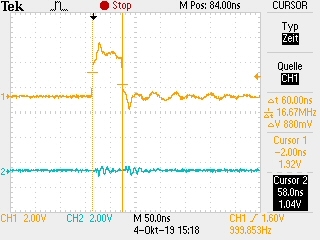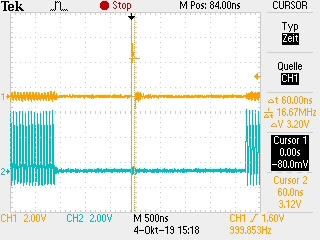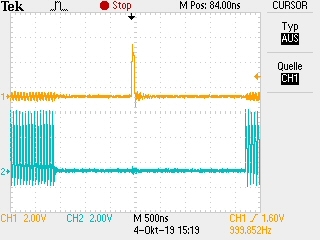Other Parts Discussed in Thread: SYSBIOS
Hallo,
I have a bare metal motion application on C66_1 and C66_2. The processing performance is outstanding (a bunch of complex calculations are done in less than 1.3 µs).
But I noticed breaks within the processing flow. When I searched for the reason I found an unexpected long interrupt latency on C66. So I write a very simple test:
main
{
while( 1 )
{
set pin high
set pin low
}
}
On scope I can see the pin toggling with a pulse with of 50 ns. Now I implemented period timer with interrupt like this:
Init_Timer4( 1 ms );
// Register Timer4 interrupts on to INTC
{
const uint32_t XBarInstSysTimer = CSL_XBAR_INST_DSP1_IRQ_32;
const uint32_t SysTimerIntC66 = 32;
CSL_xbarIrqConfigure( CSL_XBAR_IRQ_CPU_ID_DSP1, XBarInstSysTimer, CSL_XBAR_TIMER4_IRQ );
Intc_IntRegister( SysTimerIntC66, SysTimer_Handler, NULL);
Intc_IntPrioritySet( SysTimerIntC66, 1, 0);
Intc_SystemEnable( SysTimerIntC66 );
}
void SysTimer_Handler( void *handle )
{
HWREG( SOC_TIMER4_BASE + TIMER_IRQSTATUS) = TIMER_IRQSTATUS_OVF_IT_FLAG_MASK;
SysTicks++;
}
On scope I still see my pin toggeling with 20 MHz, but each one millisecond there is a large gap.
This is the time where the C66 is hanging out in the timer interrupt.
According to the documentation I expected this gap shall 300 to 500 ns.
But the time where the main loop is inactive is nearly 4 microseconds long!
I also measured the time of execution of SysTimer_Handler(), but this is very short (below 100 ns).
It seems the C66 has an interrupt latency of nearly 4 µs instead of some 100 nano seconds.
I could not believe it and double checked my measurements. But I can not found any fault.
How long is the interrupt latency of the C66?
What is going wrong?
Please note:
C66 is running directly from internal SRAM (not from OCMC and not from DDR3). Clock is 600 MHz.
The really good processing performance proof it is not a memory access or clock problem.
What should be done to reduce the interrupt latency significat?
Regards Dirk


